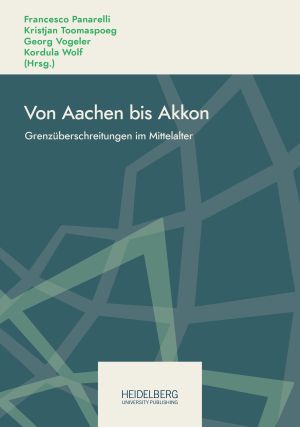Zitationsvorschlag
Lizenz (Kapitel)

Dieses Werk steht unter der Lizenz Creative Commons Namensnennung - Weitergabe unter gleichen Bedingungen 4.0 International.
Identifier (Buch)
Veröffentlicht
Grenzüberschreitungen am Rande und in der Welt. Das dreifache Leben des venezianischen Fernhändlers Niccolò de’ Conti aus der Mitte des 15. Jahrhunderts
Abstract Niccolò de’ Conti, a merchant from Chioggia (situated in the dogado of Venice), set out on a journey that lasted for decades, reaching Africa and even the most remote regions of Asia. These daring geographical bordercrossings went hand in hand with social and religious ones, as he started a family along the way, converting to Islam with them. Back in his homeland, de’ Conti was granted papal absolution and attained social prestige, yet made little mention of his adventures up until the writing of his will. Three independent sources from the midfifteenth century provide information about his life before, during and after his journey: a treatise by the humanist and papal secretary Francesco Poggio Bracciolini, and a travel report by the Castilian knight and adventurer Pero Tafur, both based on personal communications with de’ Conti, and some autobiographical documents from Venetian archives. The various testimonies are examined to see what sort of image they portray of the nobleman from Chioggia, and how the stages of his life and his world view, especially with regard to border crossings, can be taken to represent early Orientalism, as partly assumed by postcolonial research on the medieval period.






